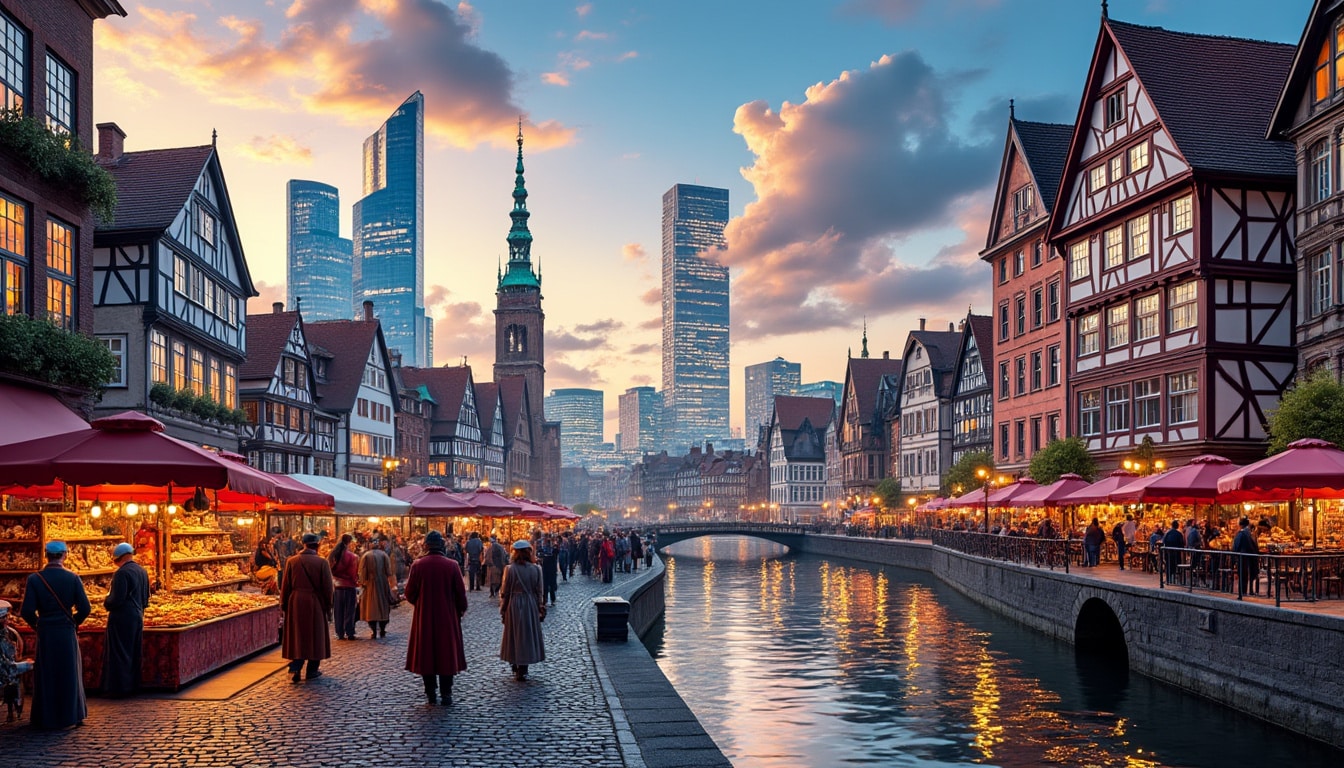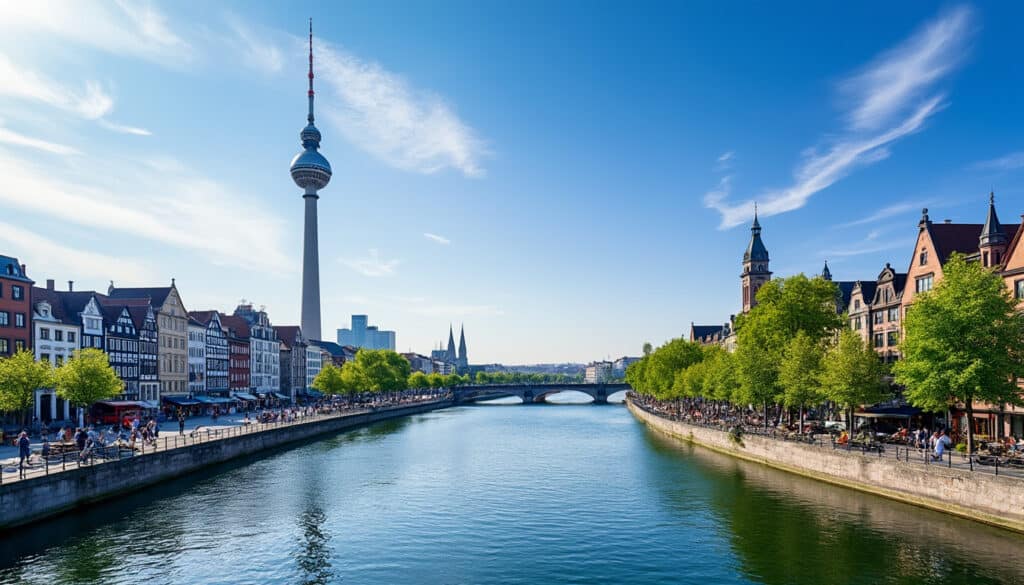Düsseldorf, the capital of North Rhine-Westphalia, is a vibrant city with a rich historical tapestry that reflects its evolution from a small village to a bustling metropolitan hub. Situated on the banks of the Rhine River, it has been a pivotal point of cultural, economic, and political development in Germany. As we explore its history, we will uncover the stories behind its growth, the significant events that shaped its identity, and the cultural treasures that continue to draw visitors from around the world.
The Early Beginnings: From Village to City
The origins of Düsseldorf trace back to the 8th century, when it began as a small settlement known as “Dorf on the Düssel,” a reference to the small tributary of the mighty Rhine River. This early community was primarily rural, with its inhabitants engaged in agriculture and fishing, capitalizing on the fertile lands and abundant water resources. By the 12th century, Düsseldorf had started gaining significance due to its strategic location.
| Era | Development | Key Events |
|---|---|---|
| 8th Century | Agricultural Settlement | Establishment of “Dorf on the Düssel” |
| 12th Century | Gaining Strategic Importance | Recognized by the Count of Berg |
In 1159, Düsseldorf was first mentioned in historical records, marking its ascendance in regional affairs. Its transformation from a rural village into a city was propelled when it was chartered in 1288 by the Count of Berg. This pivotal event represented the creation of a structured urban community with rights and privileges that attracted artisans, merchants, and other settlers, rapidly increasing its population and economic activities.
The strategic position of Düsseldorf along the Rhine made it an essential trade hub, facilitating the exchange of goods and culture. The chartering also laid the groundwork for its eventual role as a political powerhouse, reinforced by its designation as the capital of the duchies of Berg and Jülich in 1511. These developments marked the beginning of its transformation into an influential urban center.
- 🏛️ Chartering of Düsseldorf in 1288 by the Count of Berg
- 🏰 Capital of the duchies of Berg and Jülich in 1511
- 📜 Recognition in historical records in 1159
Today, the remnants of this early history can still be observed in the city’s layout, with areas like Düsseldorf Old Town holding clues to its medieval past. With its beautifully preserved buildings and narrow streets, it acts as a living museum, allowing visitors to step back in time and experience the early days of this fascinating city.
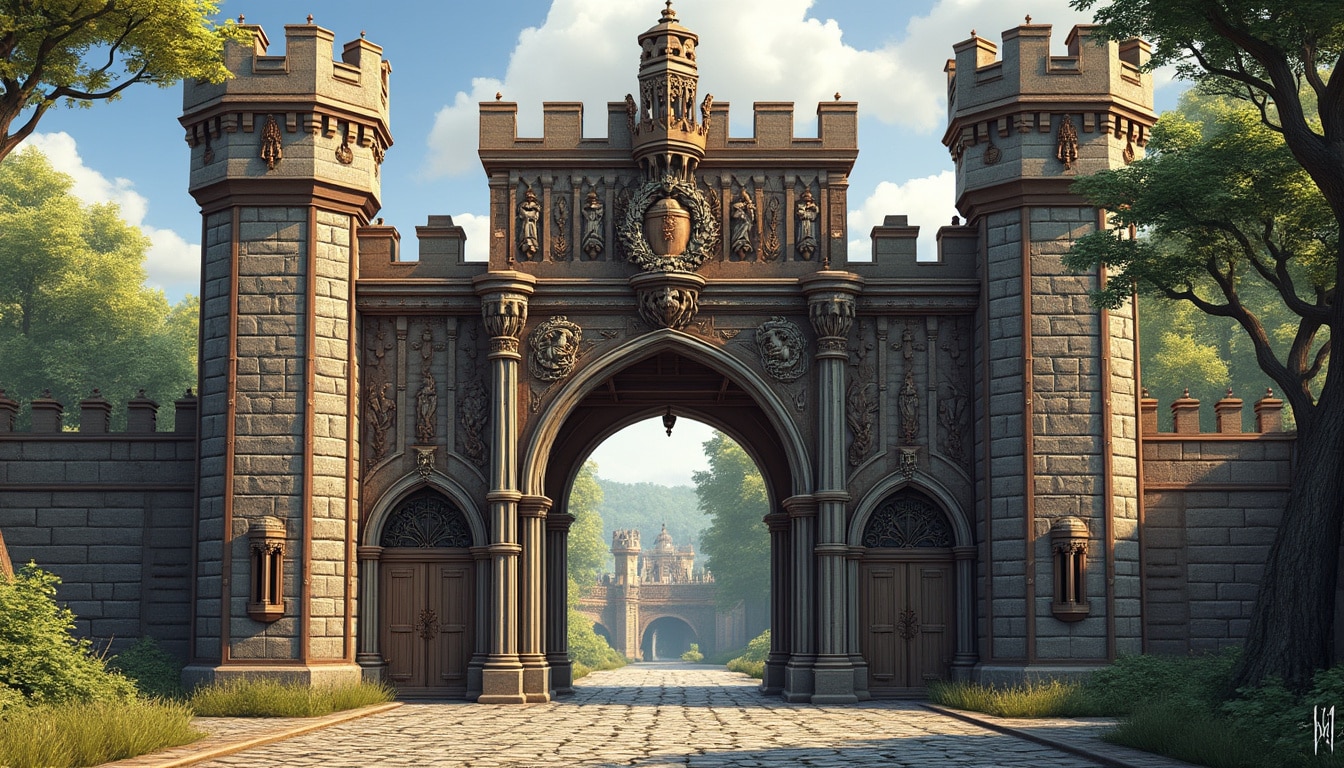
Influences of the Middle Ages
The Middle Ages were a transformative period for Düsseldorf. The city’s strategic and economic importance was recognized by various ruling entities, who sought to fortify and develop the region further. Fortifications and city walls were constructed, enhancing the city’s defense capabilities. This era also witnessed the construction of significant architectural landmarks, such as the Lambertuskirche, which became an enduring symbol of Düsseldorf.
Furthermore, the city’s infrastructure expanded with the building of roads and bridges that facilitated trade and movement, linking Düsseldorf more intricately with other parts of the Rhineland. As the city’s population continued to swell, so did its cultural and economic stature, shaping the vibrant and diverse community that it is today.
The Rise of Cultural and Political Influence
As Düsseldorf entered the modern era, its influence expanded beyond the regional to national and even international levels. The city became intertwined with key political events, surviving the turbulence of wars and the changing tides of governance. The Elector Palatine Johann Wilhelm II, affectionately known as Jan Wellem, was paramount in the cultural elevation of the city during the late 17th and early 18th centuries.
Johann Wilhelm II invested significantly in art, architecture, and culture, spearheading projects that would beautify and enrich the cityscape. His love for the arts attracted talent from across Europe, giving rise to what is today known as the Düsseldorf Art Academy, founded in 1767. This institution became a beacon of creativity, attracting renowned artists and students, fostering a rich cultural milieu that thrives to this day.
- 🎨 Founding of the Düsseldorf Art Academy in 1767
- 🎭 Promotion of arts and culture by Jan Wellem
- 🏰 Influence of the Elector Palatine
Politically, Düsseldorf played a crucial role during various European conflicts, including the Thirty Years’ War and the War of the Spanish Succession. The city emerged resilient from these trials, continually expanding its role as a center of political power and influence, which included its brief role as the capital of the Napoleonic Grand Duchy of Berg from 1805 to 1813.
Modern Düsseldorf owes much of its cultural heritage to this period of intense artistic patronage and political significance. The legacy of leaders like Jan Wellem is evident in the city’s architecture, museums, and street names, celebrating a history interwoven with art and leadership.
Architectural and Cultural Landmarks
Today, Düsseldorf continues to boast a rich array of architectural and cultural landmarks that reflect its storied past. The Schloss Jägerhof, with its splendid 18th-century architecture, now houses an impressive collection of local history within the Stadtmuseum Düsseldorf. Furthermore, the walls of the Kunstsammlung Nordrhein-Westfalen bear witness to the city’s ongoing commitment to art and culture, hosting world-renowned exhibitions and collections.
Düsseldorf is also home to the NRW Forum Düsseldorf, a dynamic space that blends artistic tradition with modern innovation. This venue embodies the city’s ongoing evolution as a cultural hub, supporting both established and emerging artists. These institutions ensure that Düsseldorf retains its esteemed place on the global cultural stage, drawing visitors from around the world who seek to explore the intersection of history and modernity.
Industrialization and Modern Growth
The dawn of industrialization in the 19th century marked another turning point for Düsseldorf. The establishment of iron and steel industries in the 1870s propelled the city into a period of rapid economic growth. The introduction of new technologies and industries brought about a wave of urban development, attracting workers from surrounding regions and contributing to the city’s demographic diversification.
This era of industrial prosperity was not without its challenges. The city had to navigate complex economic shifts, balancing the demands of growth with the social needs of an expanding workforce. Nevertheless, Düsseldorf emerged as a significant player in Germany’s industrial landscape, a status that continues into the present day.
The city’s modern economic profile is multi-faceted, featuring key industries like []banking and wholesaling, alongside its traditional manufacturing sectors. Düsseldorf’s harbors on the Rhine are among Germany’s busiest, facilitating international trade and commerce.
- 🛠️ Establishment of iron and steel industries in the 1870s
- 📈 Rapid economic growth and urban development
- 🏗️ Administrative and cultural center of the Rhine-Ruhr area
| Sector | Key Industries | Impact |
|---|---|---|
| Industry | Iron and Steel | Economic Growth |
| Economy | Banking and Wholesaling | Trade and Finance |
Today’s Düsseldorf is noted for its cosmopolitan ambiance, vibrant arts scene, and robust economic infrastructure, making it a focal point for business and cultural exchange in Europe. The city’s commitment to innovation ensures that it remains at the forefront of economic and technological advancement.
Post-War Reconstruction and Modernization
The devastation of World War II left a significant impact on Düsseldorf, as it did across much of Europe. The city’s infrastructure was heavily damaged, necessitating a massive reconstruction effort in the post-war years. This period of rebuilding was characterized by a blend of restoration and modernization, with efforts to preserve historical elements while embracing modern architecture and new urban planning paradigms.
Key landmarks like the Lambertuskirche were repaired, and new structures emerged, reflecting contemporary architectural styles. The city also saw the development of cultural spaces, such as the Wilhelm-Marx-Haus, reputed to be Germany’s first skyscraper, which symbolizes Düsseldorf’s post-war resilience and ambition.
Today, Düsseldorf stands as an exemplar of successful urban renewal, balancing its rich historical legacy with the demands of modern living. The city’s skyline is a testament to its enduring spirit, a blend of the old and new that continues to captivate residents and tourists alike.
Contemporary Düsseldorf: A Hub of Culture and Innovation
Modern-day Düsseldorf is a city that thrives on its impressive blend of cultural richness and innovative spirit. The city is home to a wide array of museums encompassing diverse fields, from the spectacular collections at the Kunstsammlung Nordrhein-Westfalen to the multifaceted exhibitions at the Rheinische Post. These cultural institutions celebrate Düsseldorf’s artistic heritage and forward-thinking ethos.
Facts about Düsseldorf are aplenty, reflecting its dynamic local life and diverse cultural expressions. Whether one is interested in art, history, or modern innovations, Düsseldorf offers a compelling narrative for every visitor.
In the heart of the city, the Düsseldorf Old Town remains a vibrant testament to its historical roots, offering the perfect blend of past and present. Visitors can explore the dynamic cultural scene, characterized by bustling restaurants offering traditional Rhenish fare, alongside modern culinary delights. For those eager to discover what people eat in Düsseldorf, there are plenty of opportunities to taste this rich culinary blend.
- 🎨 Extensive museums, including the Kunstsammlung Nordrhein-Westfalen
- 🏛️ Renowned institutions like the Düsseldorf Art Academy and NRW Forum Düsseldorf
- 📰 Cultural vibrancy covered by the Rheinische Post
Moreover, the city’s commitment to innovation and economic growth continues to attract talent and investment from around the world. The cultural scene is complemented by a thriving educational landscape, with institutions like the University of Düsseldorf and various technical institutes leading research and technological advancements.
The vibrant city life and its mix of tradition and modernity make Düsseldorf a fascinating place to visit and live. The enduring appeal of this city is its ability to preserve its heritage while constantly reinventing itself to meet the demands of the future.
Preservation of Heritage and Future Aspirations
Düsseldorf stands as a model of how cities can balance preservation with progress. The Düsseldorf City Archive and Stadtmuseum Düsseldorf safeguard its rich history while providing insights into future aspirations. The city endeavors to maintain its historic sites, promoting tourism while accommodating growth.
To truly understand Düsseldorf, one must also consider its emerging aspirations, which are global in scope. The city is focused on sustainability and technology, integrating green spaces and smart city innovations into its urban planning. This commitment ensures that Düsseldorf remains not only a city rich in history but also one that is poised to be a leader in addressing contemporary urban challenges.
In conclusion, Düsseldorf’s history is a tale of resilience, innovation, and cultural richness. It serves as a testament to the city’s ability to adapt and evolve, maintaining its relevance and appeal through the centuries. Whether exploring its rich past or experiencing its vibrant present, Düsseldorf offers a unique and unforgettable journey through time.
FAQs about Düsseldorf
- ❓ What is the best time to visit Düsseldorf for cultural events? Spring and Autumn are ideal, offering a wealth of festivals and cultural experiences.
- ❓ Which foods are a must-try when visiting Düsseldorf? Sample the traditional Altbier and dishes like Rheinischer Sauerbraten.
- ❓ How does Düsseldorf balance tradition with modernity? Through innovative urban planning and a diverse cultural scene that honors its history while embracing new developments.
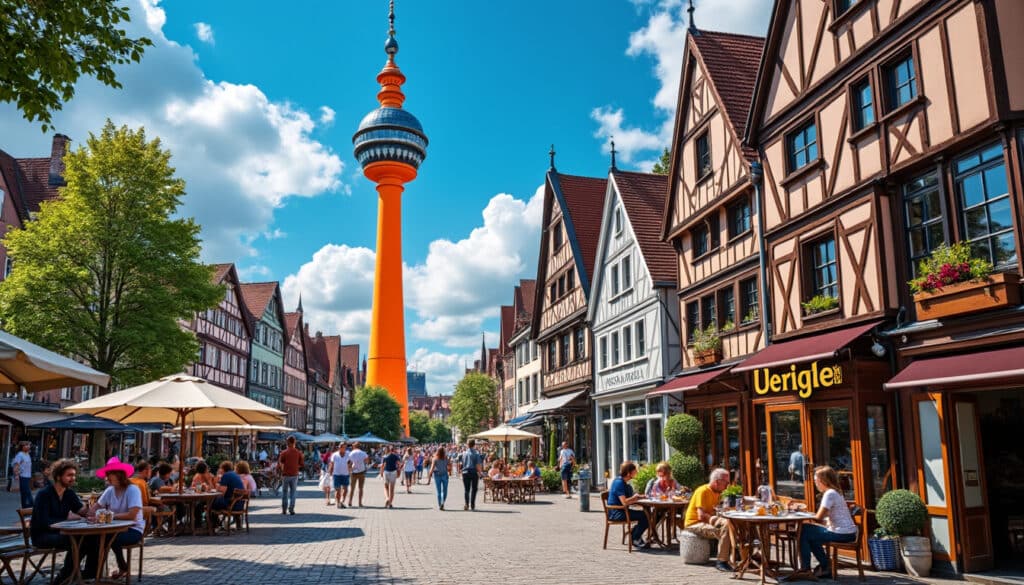
Fun Facts & Curiosities About Dusseldorf
In the vibrant tapestry of European cities, Düsseldorf emerges as a unique blend of modernity and tradition, captivating travelers with its eclectic mix of culture, gastronomy, and history. Not only is it a sartorial hotspot with a thriving fashion scene,…
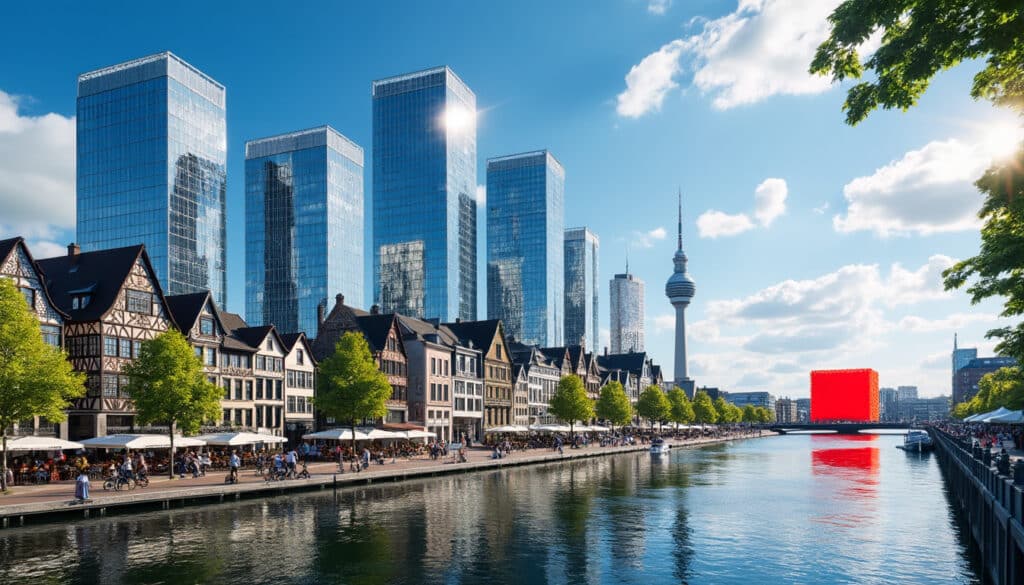
Architecture and urban features of Dusseldorf
Discover the symphony of architectural innovation and urban sophistication as you explore Düsseldorf, a city that has become a beacon of modern design. From the whimsical creations of Frank Gehry to the sustainable innovations of Kö-Bogen, Düsseldorf’s landscape is a…
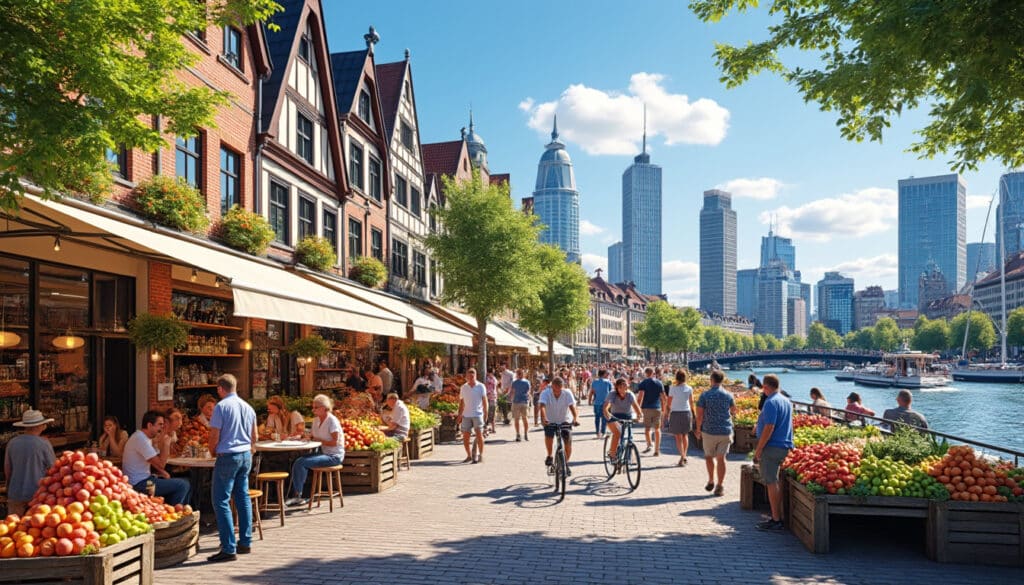
Nestled on the banks of the Rhine River, Düsseldorf is a city that embodies both tradition and modernity. With its dynamic blend of history, culture, and contemporary lifestyle, this vibrant city offers a rich tapestry of experiences for its residents.…
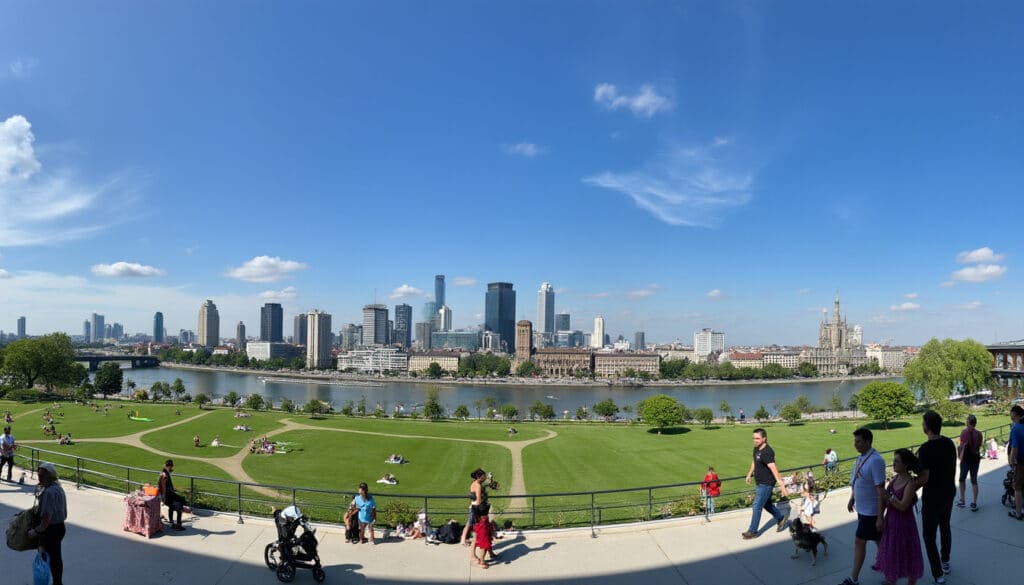
Demographics and geography of Dusseldorf
As the vibrant heart of North Rhine-Westphalia, Düsseldorf is often celebrated for its distinctive blend of culture, commerce, and a bustling population. Known for its thriving arts scene, high-fashion district, and influential economy, Düsseldorf is also a city that stands…

Language and spelling of Dusseldorf
Düsseldorf is a city rich in history and culture, captivating visitors from around the world with its unique charm. Nestled along the banks of the Rhine River, it serves as the capital of North Rhine-Westphalia, Germany’s most populous state. The…
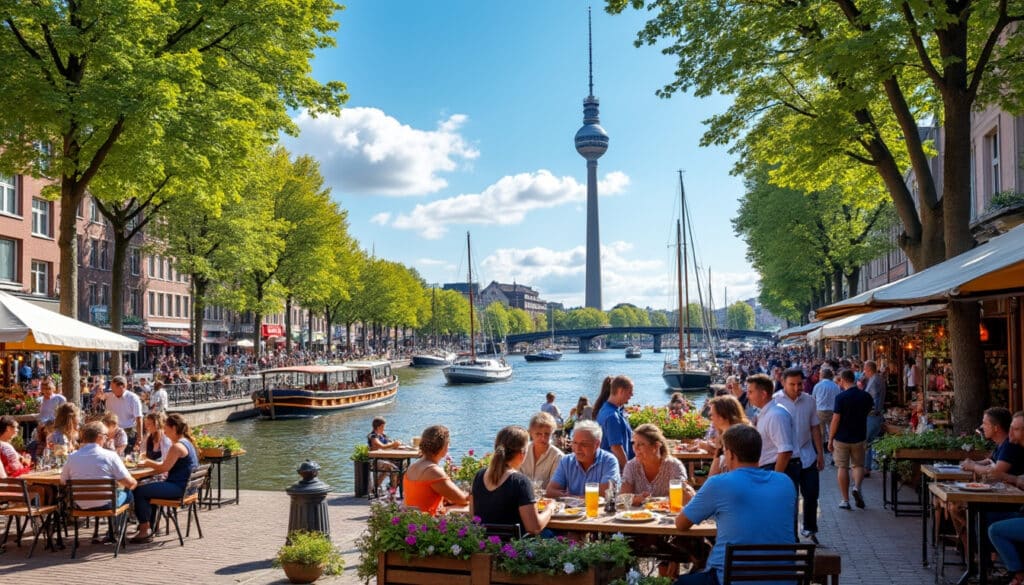
Local tips for tourists in Dusseldorf
Düsseldorf, a vibrant city nestled along the Rhine River in Germany, offers a plethora of experiences that blend modern elegance with historic charm. From its bustling Altstadt, known as the “longest bar in the world,” to the futuristic architectural wonders…
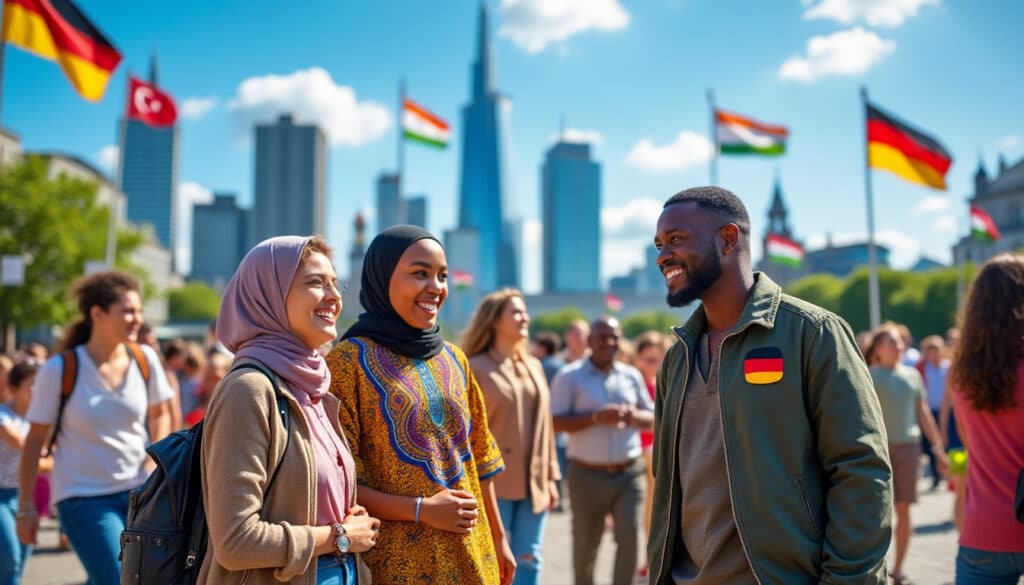
Names, flags, and identity of Dusseldorf
The vibrant city of Düsseldorf, nestled along the scenic banks of the Rhine River, is a beacon of German culture and history. Renowned for its diverse cultural tapestry and iconic landmarks, this metropolis stands as the capital of North Rhine-Westphalia…
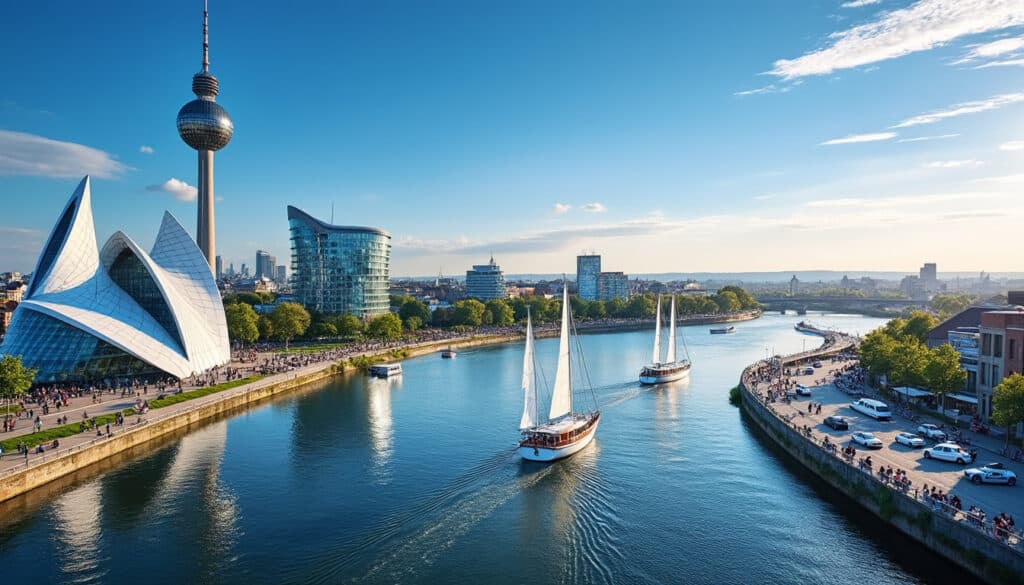
Reputation and identity of Dusseldorf
Renowned for its vibrant modernity, historical depth, and strategic location on the Rhine River, Düsseldorf stands as a thriving metropolis in Germany. This dynamic city is not only the capital of North Rhine-Westphalia (NRW) but also a core hub for…
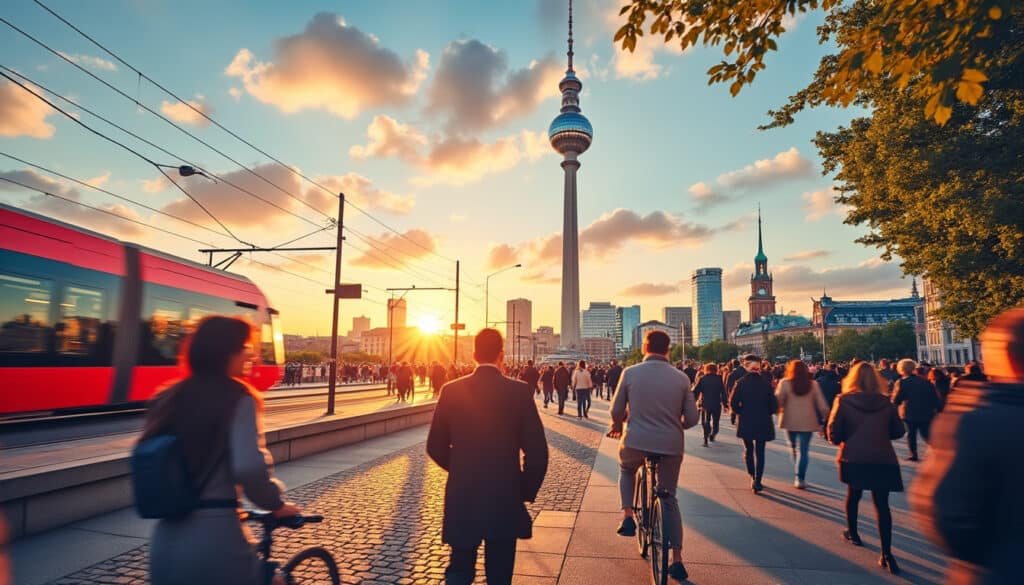
Time and time zone in Dusseldorf
In the bustling city of Düsseldorf, a vibrant hub of culture and industry, understanding the nuances of time and its influence on everyday life is essential. This article seeks to unravel the threads of time in Düsseldorf, offering insights into…
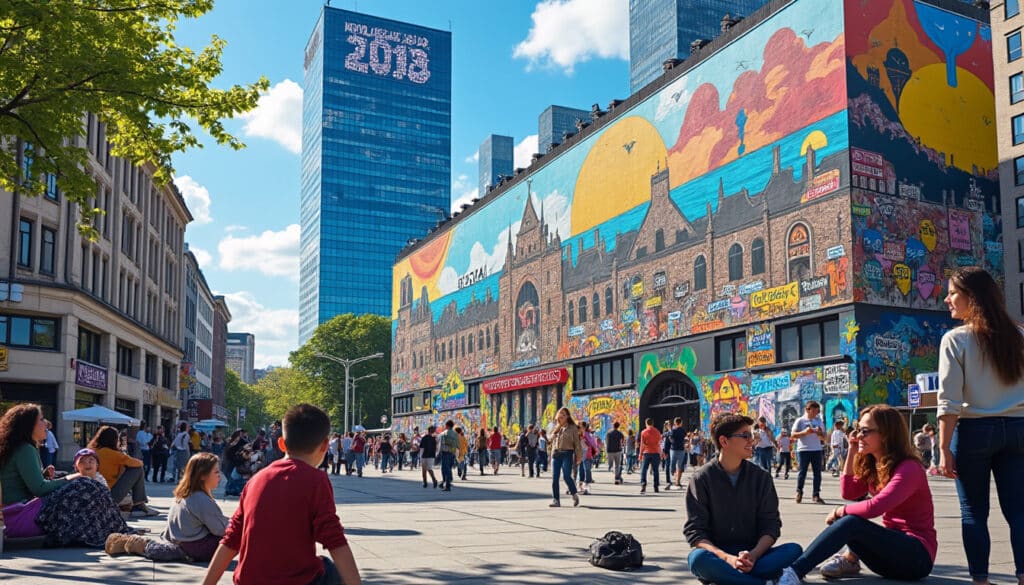
Unusual facts and social issues in Dusseldorf
Düsseldorf, the vibrant capital of North Rhine-Westphalia, is a city that effortlessly combines historical charm with modern allure. Renowned for its fashion, arts, and lively cultural scenes, it’s a destination that captivates with its unique blend of the traditional and…
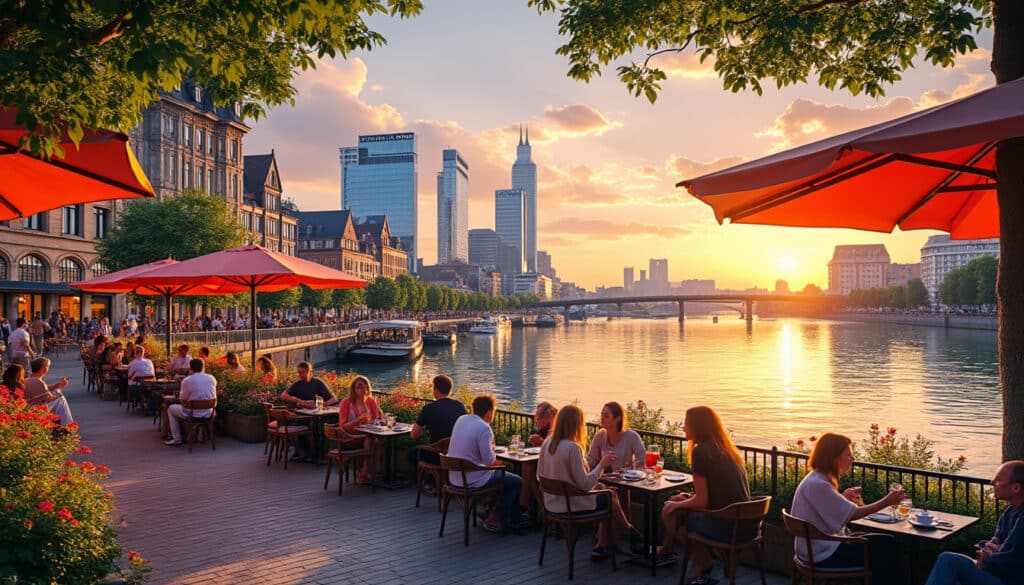
What does Dusseldorf look, smell, feel like?
When you think of Düsseldorf, envision a city where historical charm meets modern innovation, a place teeming with cultural richness and vibrant energy. Located along the Rhine River, Düsseldorf is a city where tradition and avant-garde flamboyance mesh seamlessly. Here,…
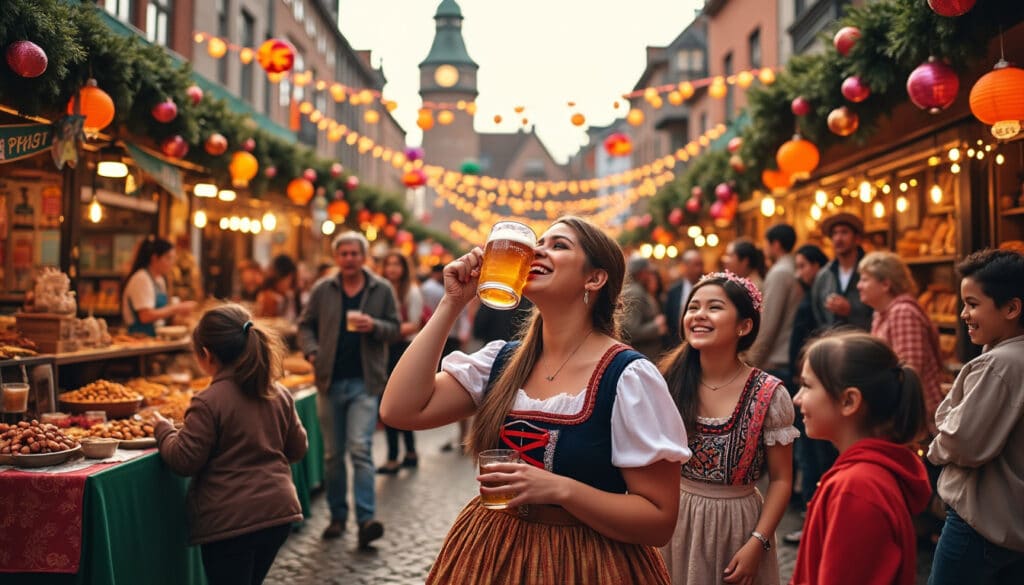
Holidays and celebrations in Dusseldorf
Welcome to the enchanting world of Dusseldorf, a city where every season brings a wave of vibrant celebrations, each echoing with history, culture, and the hearty cheer of its people. From centuries-old traditions to modern-day extravaganzas, Dusseldorf stands as a…

